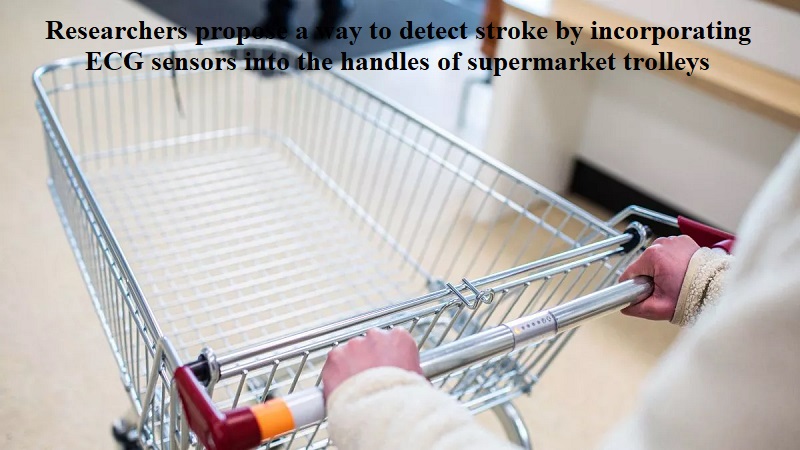
According to media reports, researchers have proposed a unique method of identifying individuals at risk of stroke by incorporating electrocardiogram (ECG) sensors into the handles of supermarket trolleys. Atrial fibrillation (AF), a condition characterized by irregular heart rhythms, affects approximately 1 in 45 people in the UK and significantly increases the risk of stroke. Detecting AF early is crucial because treatments are available.
By integrating sensor-equipped trolleys, researchers aim to screen adults for abnormal heart rhythms while they shop, potentially saving lives.
The trial, which took place over three months at four Sainsbury’s supermarkets, involved 2,155 adult participants. Individuals were instructed to hold the trolley handle for at least 60 seconds. If the sensors detected signs of AF, a red cross would appear on the handle, while a green tick indicated no abnormal rhythms.
In addition to the sensor readings, all participants underwent a pulse check as an additional screening measure. The results, presented at the Acnap 2023 scientific congress, showed that out of the 220 participants who consented to data analysis and were flagged as potentially having AF, 59 were diagnosed with the condition. Remarkably, 39 of those individuals were previously unaware of their condition and were subsequently contacted for further cardiology appointments.
The research team acknowledged the need for improvements in accuracy. Approximately 20 percent of the 220 ECGs were inconclusive due to hand movements interfering with the readings. While the approach correctly identified individuals with AF between 70 percent and 93 percent of the time, it was less effective at detecting those without the condition. The team estimated that only a quarter to half of those flagged as having AF actually had the condition upon further review.
Prof Ian Jones from Liverpool John Moores University, one of the study’s authors, highlighted the increased accessibility provided by this health screening approach and challenged the notion that certain communities were hard to reach. However, the researchers recognized the need for further work to address the limitations of the method. Prof Jonathan Mant from the University of Cambridge appreciated the innovative supermarket trolley approach but cautioned against potential risks, such as a high number of inconclusive ECGs and the possibility of misdiagnosing occasional heart-rhythm irregularities as AF due to frequent trolley use.
Despite the need for cautious assessment of flagged individuals, Prof Robert Storey from the University of Sheffield welcomed the research. He noted that while wearable devices for AF detection have gained attention, many people lack access to such gadgets. Therefore, the concept of using shop trolleys for heart rhythm monitoring holds promise. The study’s results demonstrated the detection of a significant number of previously undiagnosed AF cases, potentially preventing strokes among these individuals.

Post Your Comments